Meet the Fittest Cop in America
Meet the Fittest Cop in America
From the beginning, CrossFit has positioned itself as the ideal strength and conditioning program for law enforcement officers, first responders and militar
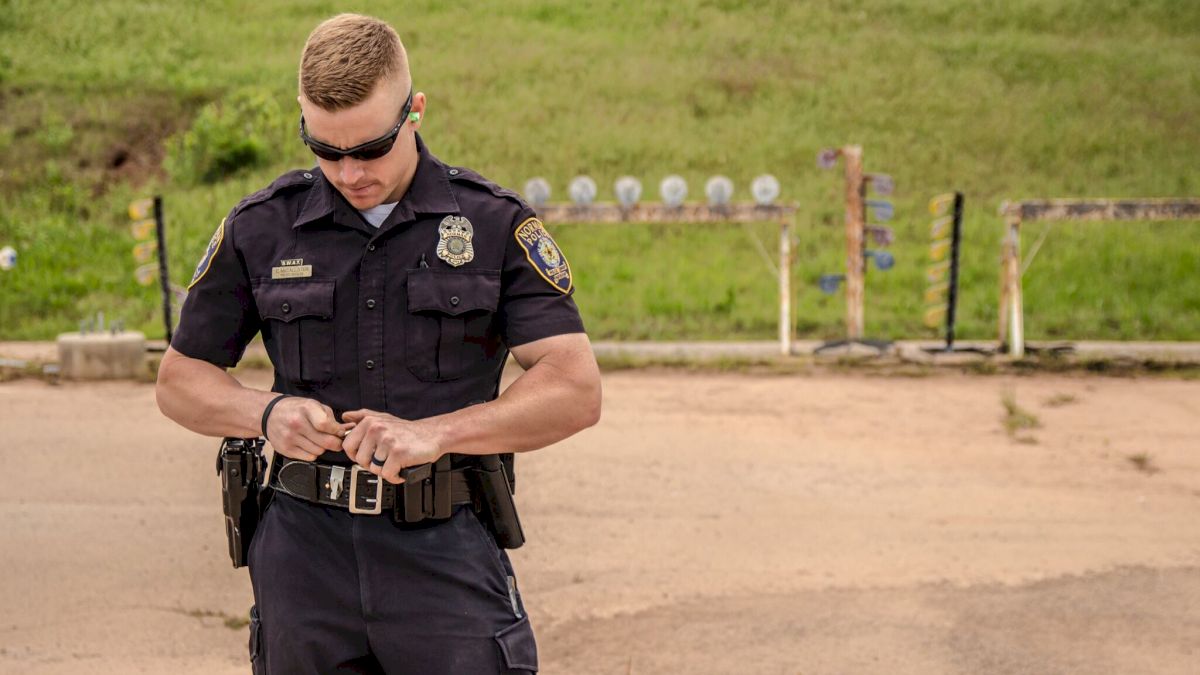
From the beginning, CrossFit has positioned itself as the ideal strength and conditioning program for law enforcement officers, first responders and military personnel. It seemed only a matter of time before HQ introduced a way for athletes from those backgrounds to compete against one another. In 2016, the CrossFit Games Open provided such a way, with the introduction of four unique divisions: Military, Law Enforcement, Firefighter and Emergency Medical Technician.
On the law enforcement side, Oklahoma native Casey McCallister ended up finishing first in the United States and second worldwide (Canadian Games veteran Albert-Dominic Larouche finished in first). What’s more, the 27-year-old finished tenth in the North Central region to earn a trip to the Central regional at the end of May. A five-and-a-half year veteran with the Norman police department in Norman, Oklahoma (home of the University of Oklahoma), McCallister is a member of the SWAT team and pistol team as well as a defensive tactics instructor, firearms instructor, fitness instructor and training officer. He is also a coach at Koda CrossFit Norman. McCallister recently sat down with FloElite to describe what it’s like being the Fittest Cop in America.
How did you find CrossFit? When did you start and what did you like about it?
I found CrossFit through one of my best friends at work. We started doing what we thought was CrossFit in 2013. We did a Hero workout every day and usually finished with some type of bro-flex workout. I.E. curls, bench press, triceps extensions, and so on. I loved the idea of a workout everyday in honor of someone who had made the ultimate sacrifice for our country. It was a daily reminder that no matter what I was going through, it wasn’t as bad as what that hero and their families were going through and to suck it up. I would say, “this is just a workout. It’s temporary.” As I progressed in my training I realized to be successful in the sport of CrossFit I would have to work with some people who actually knew what CrossFit was.
Your first regionals experience was pretty unique in that it was your first CrossFit competition and you’d only been CrossFitting for a few months. Can you describe what it was like to compete on that stage?
Yes. Regionals 2014 was my first individual competition. I honestly didn’t realize what the big deal was at the time. I had only been at my gym [Koda CrossFit Norman] for four months when the Open started that year. It was my first Open and I just kind of thought regionals was just the “next” step in going to the Games. I was wrong. The first event was a one-rep max hang squat snatch. I knew I wasn’t very good at it but when we started warming up in the back and guys were “warming up” with weight I couldn’t even fail correctly, I realized these guys were in a different league. At that point I realized that maybe this whole “regionals” thing was a bigger accomplishment than I had originally given it credit for. I was then determined to just not embarrass myself. At the end of the weekend, I was able to look back and realize what a great experience it was. The support from everyone was incredible and made me determined to get back on that stage. Little did I know that they would cut the field by more than 50 percent a year later. Kept my head down and just focused on having fun while getting better.
What did you think when you first heard that CrossFit was creating a special Open division for law enforcement officers?
I was extremely intrigued. I was immediately determined to win the division worldwide. I hoped that Castro would do like he did with the teens last year, making a LEO-specific division for the Games.
What made you want to become a police officer?
Two reasons. First one sounds cheesy but the thing that made me want to become a police officer is that I genuinely wanted to help people. When people are in danger and need help they call the police. I wanted to help those people. Second, my dad was a firefighter for 30+ years and he is my biggest hero. I wanted to be like my dad, helping people and making the community a better place. When I was little I remember him missing little league games and family events and always wondered why. When I realized that he was working so that everyone else could safely enjoy those moments with their loved ones, I knew I was meant to be in public safety like Dad.
What’s your schedule like as a police officer? Is it difficult to balance work and CrossFit training?
Schedule? That implies that there is some regularity to it. Seriously though, the schedule can make things difficult but if you want something bad enough you’ll make it happen. I have an extremely strong support system around me that makes it easier.
What’s it like being a police officer in Norman, Oklahoma?
People think that nothing happens in Norman but we get a little bit of everything here. We are big enough that we have several special teams and special assignments but small enough where I can at least recognize all of our officers.
Who’s fitter? Police officers or firefighters?
(laughing) I hate to admit it, but draggin’ hoses all day makes you fitter than eatin’ donuts all day.
Which is the truer statement? Being a CrossFitter helps me as a police officer. Or: being a police officer helps me as a CrossFitter.
I can’t stand people who ride the fence so I would say that, although both statements are true, “being a CrossFitter helps me as a police officer” is the truer statement. I believe that being a CrossFitter helps me in nearly all facets of life: physically, mentally, spiritually, emotionally, career, family, public speaking, and many more. However, the warrior mindset that is instilled upon me from being a police officer definitely helps me with the mental side and pain tolerance of being a CrossFitter.
What are your thoughts on being the fittest cop in America?
It sounds really cool but until CrossFit makes it a bigger deal it’s just a stat that people can talk about. The support that it has generated around the department, however, is amazing. People who I thought were anti-CrossFit have sincerely congratulated me, which is really cool. It has also sparked a lot of interest within our department in officers taking the initiative to become more fit. Not in everyone, but there have been several who have started sipping the CrossFit Kool-aid.
Do you have any specific goals for regionals?
Similar to 2014, don’t embarrass myself and have fun. I think I will definitely appreciate this trip more than last time as I realize that not everyone gets to throw down side by side with some of these studs.
Has your fitness helped you on the job? Can you think of any difficult encounters where being a fit made a big difference?
I believe your physical appearance helps you on every encounter you go on. If you appear to be in shape, boots shined, uniform squared away, well put together, and confident you have a stronger, what we call, “command presence.” It’s human nature to “size up” anyone you plan to attack. So being a fit officer immediately gives you more command presence making subjects you encounter second-guess themselves on running, assaulting, or resisting. Specifically, I have never lost a foot pursuit (knock on wood). Any assaultive subjects I’ve encountered we have been able to take into custody quickly and without injury to the officers. All of this is great, but being fit does not guarantee anything. Even the fittest cop in America can’t stop or outrun bullets. “Train as though your life depends on it, because it just might.” Fitness is one of dozens of facets in police work that officers must constantly push themselves to be better at. However, fitness should be one of the most important to all officers, in my opinion. Being fit doesn’t make you a good cop but being unfit makes you less than your potential as a cop.
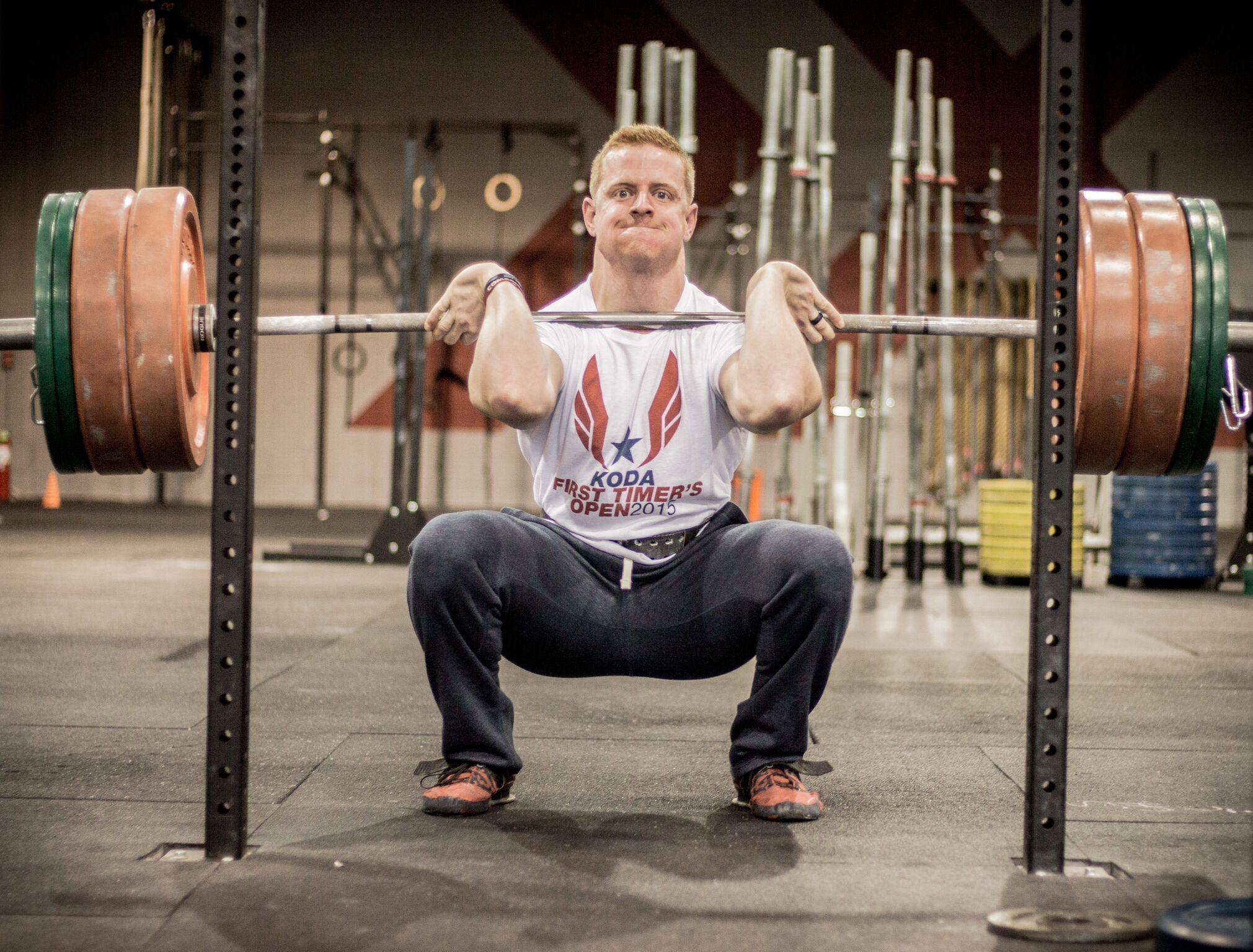
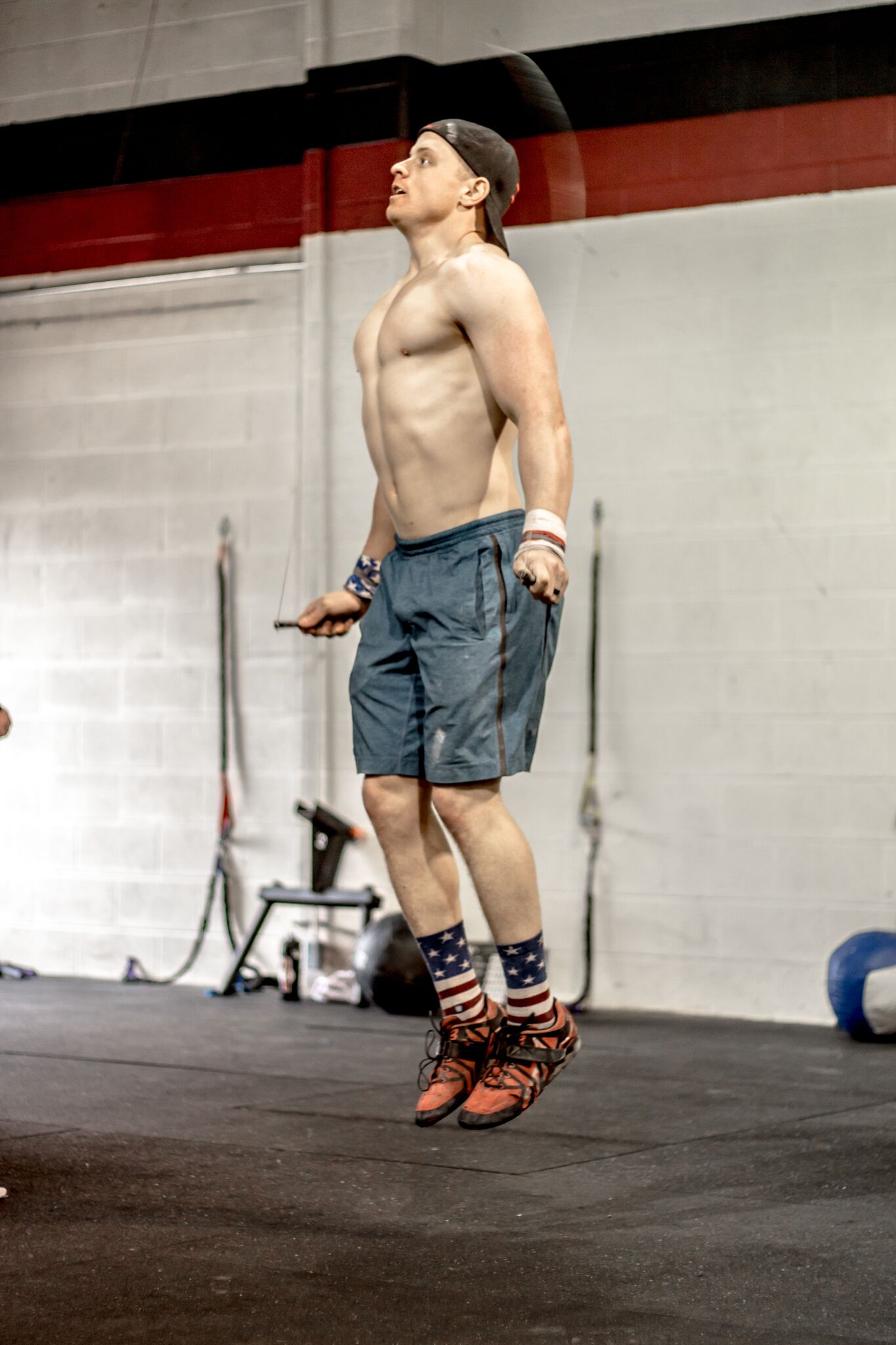
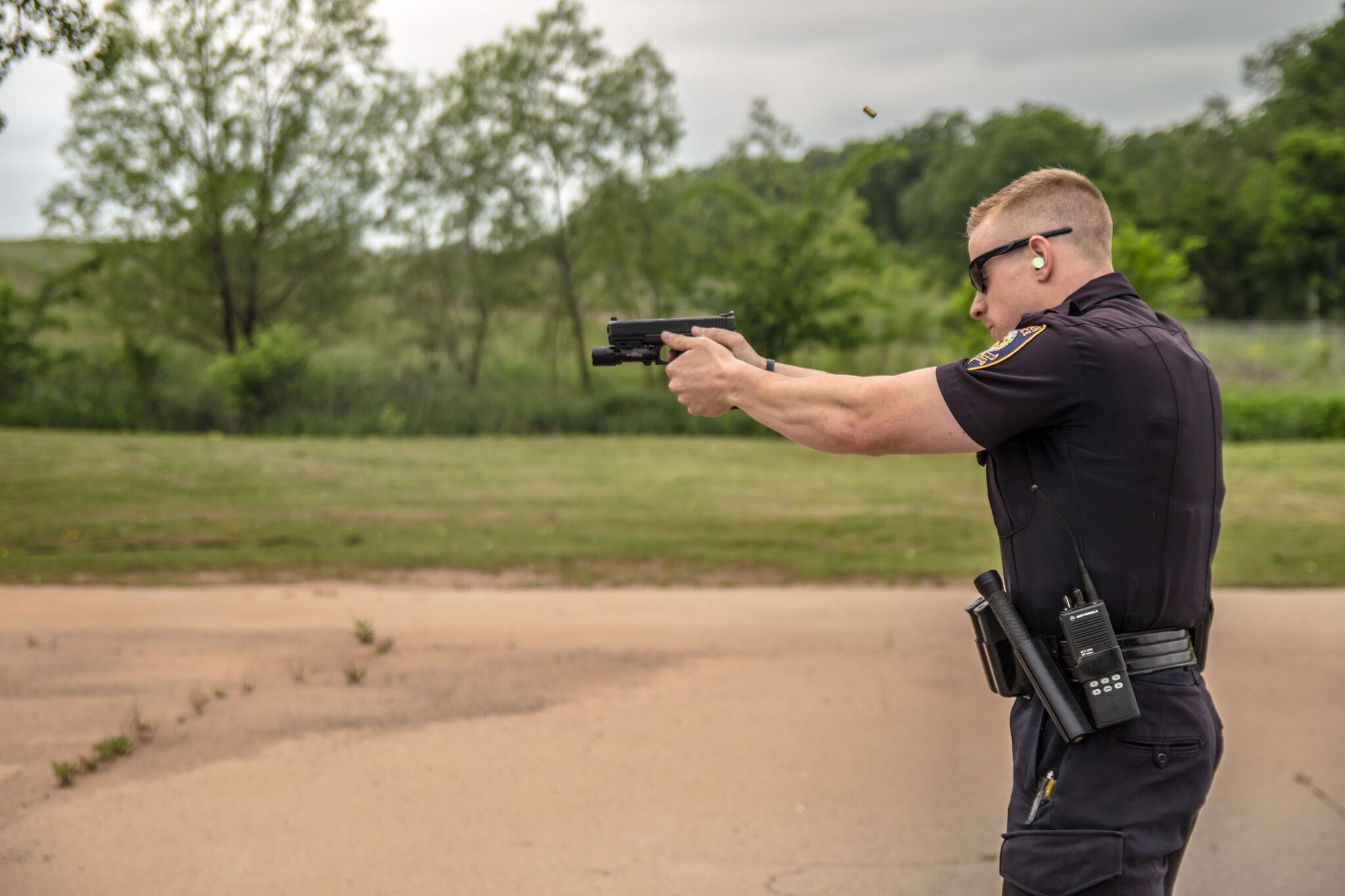
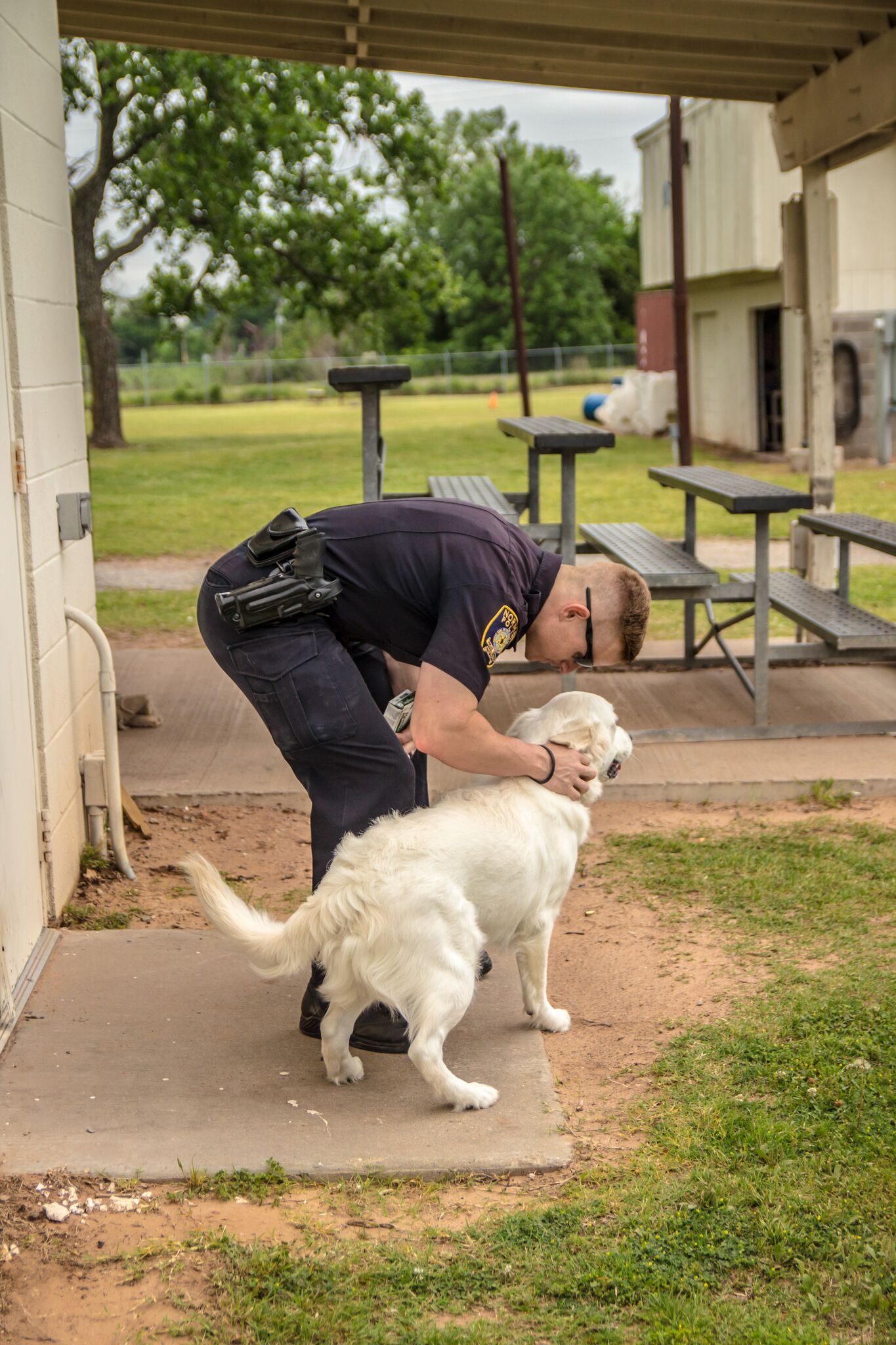
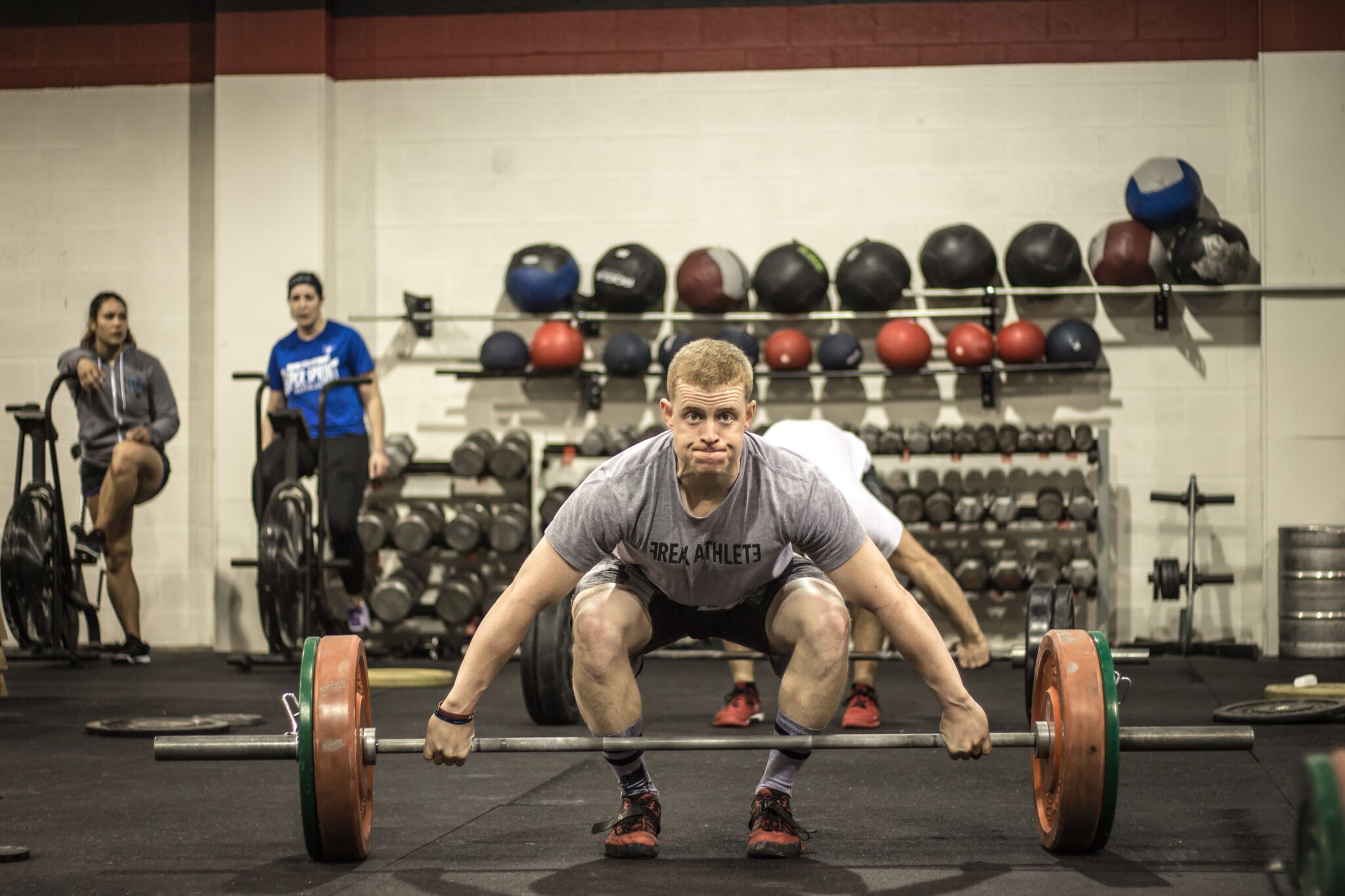
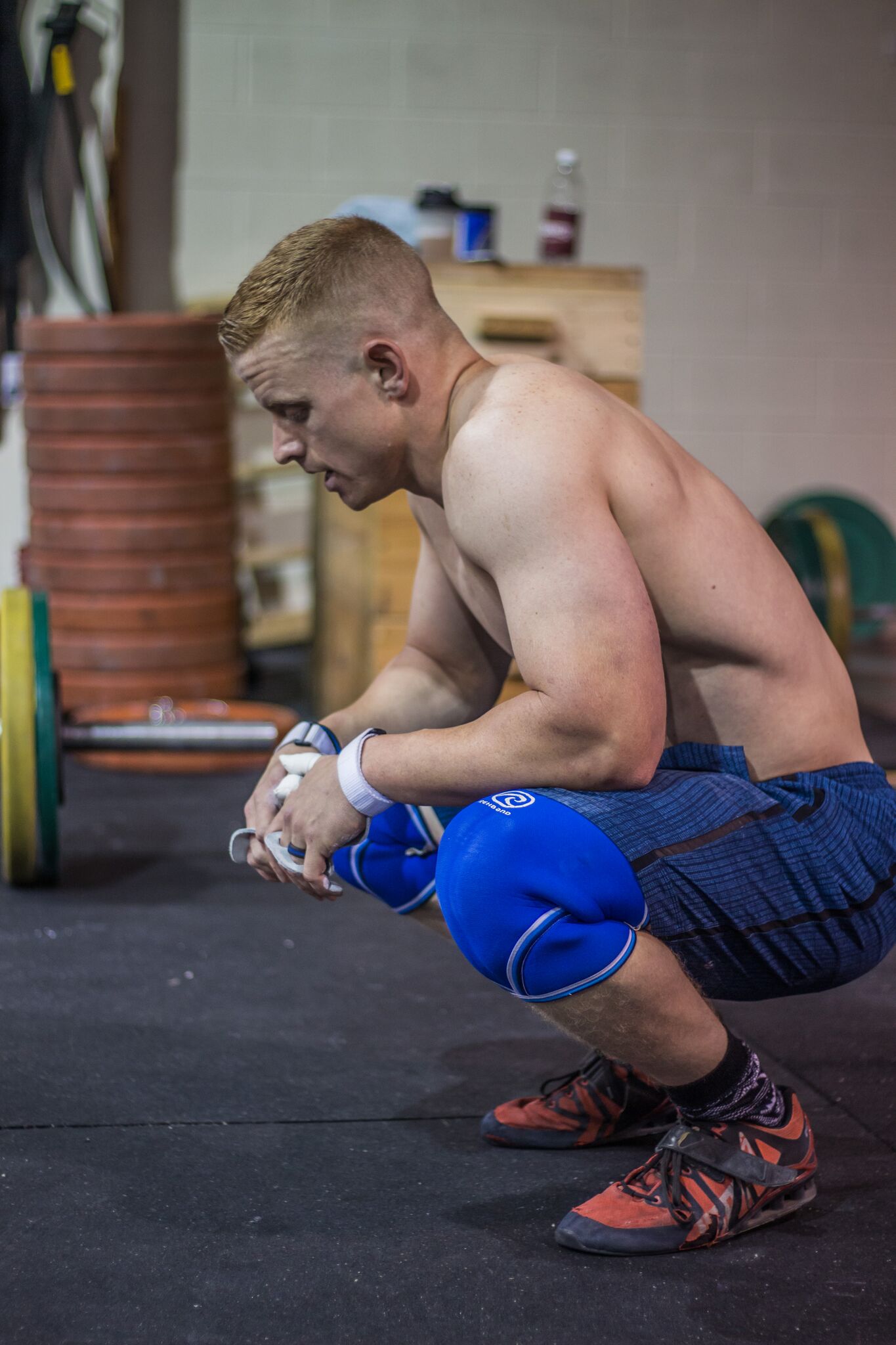
Reporting contributed by Eddie Malone
Photo credit: Jill Herlihy, Beyond the Script Photography (Instagram: @beyond.the.script)
On the law enforcement side, Oklahoma native Casey McCallister ended up finishing first in the United States and second worldwide (Canadian Games veteran Albert-Dominic Larouche finished in first). What’s more, the 27-year-old finished tenth in the North Central region to earn a trip to the Central regional at the end of May. A five-and-a-half year veteran with the Norman police department in Norman, Oklahoma (home of the University of Oklahoma), McCallister is a member of the SWAT team and pistol team as well as a defensive tactics instructor, firearms instructor, fitness instructor and training officer. He is also a coach at Koda CrossFit Norman. McCallister recently sat down with FloElite to describe what it’s like being the Fittest Cop in America.
How did you find CrossFit? When did you start and what did you like about it?
I found CrossFit through one of my best friends at work. We started doing what we thought was CrossFit in 2013. We did a Hero workout every day and usually finished with some type of bro-flex workout. I.E. curls, bench press, triceps extensions, and so on. I loved the idea of a workout everyday in honor of someone who had made the ultimate sacrifice for our country. It was a daily reminder that no matter what I was going through, it wasn’t as bad as what that hero and their families were going through and to suck it up. I would say, “this is just a workout. It’s temporary.” As I progressed in my training I realized to be successful in the sport of CrossFit I would have to work with some people who actually knew what CrossFit was.
Your first regionals experience was pretty unique in that it was your first CrossFit competition and you’d only been CrossFitting for a few months. Can you describe what it was like to compete on that stage?
Yes. Regionals 2014 was my first individual competition. I honestly didn’t realize what the big deal was at the time. I had only been at my gym [Koda CrossFit Norman] for four months when the Open started that year. It was my first Open and I just kind of thought regionals was just the “next” step in going to the Games. I was wrong. The first event was a one-rep max hang squat snatch. I knew I wasn’t very good at it but when we started warming up in the back and guys were “warming up” with weight I couldn’t even fail correctly, I realized these guys were in a different league. At that point I realized that maybe this whole “regionals” thing was a bigger accomplishment than I had originally given it credit for. I was then determined to just not embarrass myself. At the end of the weekend, I was able to look back and realize what a great experience it was. The support from everyone was incredible and made me determined to get back on that stage. Little did I know that they would cut the field by more than 50 percent a year later. Kept my head down and just focused on having fun while getting better.
What did you think when you first heard that CrossFit was creating a special Open division for law enforcement officers?
I was extremely intrigued. I was immediately determined to win the division worldwide. I hoped that Castro would do like he did with the teens last year, making a LEO-specific division for the Games.
What made you want to become a police officer?
Two reasons. First one sounds cheesy but the thing that made me want to become a police officer is that I genuinely wanted to help people. When people are in danger and need help they call the police. I wanted to help those people. Second, my dad was a firefighter for 30+ years and he is my biggest hero. I wanted to be like my dad, helping people and making the community a better place. When I was little I remember him missing little league games and family events and always wondered why. When I realized that he was working so that everyone else could safely enjoy those moments with their loved ones, I knew I was meant to be in public safety like Dad.
What’s your schedule like as a police officer? Is it difficult to balance work and CrossFit training?
Schedule? That implies that there is some regularity to it. Seriously though, the schedule can make things difficult but if you want something bad enough you’ll make it happen. I have an extremely strong support system around me that makes it easier.
What’s it like being a police officer in Norman, Oklahoma?
People think that nothing happens in Norman but we get a little bit of everything here. We are big enough that we have several special teams and special assignments but small enough where I can at least recognize all of our officers.
Who’s fitter? Police officers or firefighters?
(laughing) I hate to admit it, but draggin’ hoses all day makes you fitter than eatin’ donuts all day.
Which is the truer statement? Being a CrossFitter helps me as a police officer. Or: being a police officer helps me as a CrossFitter.
I can’t stand people who ride the fence so I would say that, although both statements are true, “being a CrossFitter helps me as a police officer” is the truer statement. I believe that being a CrossFitter helps me in nearly all facets of life: physically, mentally, spiritually, emotionally, career, family, public speaking, and many more. However, the warrior mindset that is instilled upon me from being a police officer definitely helps me with the mental side and pain tolerance of being a CrossFitter.
What are your thoughts on being the fittest cop in America?
It sounds really cool but until CrossFit makes it a bigger deal it’s just a stat that people can talk about. The support that it has generated around the department, however, is amazing. People who I thought were anti-CrossFit have sincerely congratulated me, which is really cool. It has also sparked a lot of interest within our department in officers taking the initiative to become more fit. Not in everyone, but there have been several who have started sipping the CrossFit Kool-aid.
Do you have any specific goals for regionals?
Similar to 2014, don’t embarrass myself and have fun. I think I will definitely appreciate this trip more than last time as I realize that not everyone gets to throw down side by side with some of these studs.
Has your fitness helped you on the job? Can you think of any difficult encounters where being a fit made a big difference?
I believe your physical appearance helps you on every encounter you go on. If you appear to be in shape, boots shined, uniform squared away, well put together, and confident you have a stronger, what we call, “command presence.” It’s human nature to “size up” anyone you plan to attack. So being a fit officer immediately gives you more command presence making subjects you encounter second-guess themselves on running, assaulting, or resisting. Specifically, I have never lost a foot pursuit (knock on wood). Any assaultive subjects I’ve encountered we have been able to take into custody quickly and without injury to the officers. All of this is great, but being fit does not guarantee anything. Even the fittest cop in America can’t stop or outrun bullets. “Train as though your life depends on it, because it just might.” Fitness is one of dozens of facets in police work that officers must constantly push themselves to be better at. However, fitness should be one of the most important to all officers, in my opinion. Being fit doesn’t make you a good cop but being unfit makes you less than your potential as a cop.






Reporting contributed by Eddie Malone
Photo credit: Jill Herlihy, Beyond the Script Photography (Instagram: @beyond.the.script)